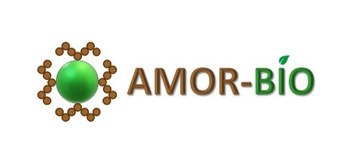
Bio-based and biodegradable polymers are nowadays considered the most sustainable alternatives to traditional petroleum-based polymers, as they address the current environmental concerns in terms of plastic pollution and greenhouse gas emissions. Poly (lactic acid) (PLA) is one of the most widely utilized and investigated biopolymers, due to its biodegradability, biocompatibility and relatively low cost. The incorporation of nano-sized fillers to obtain nanocomposites is a widely used procedure to improve the properties of PLA. The major challenge to develop PLA-based nanocomposites for advanced technological applications is the capacity to understand, tailor and optimize the structure and properties of the interphases between polymer and nanofiller. AMOR-BIO will contribute to a better understanding of the role that the nanometer-sized interphases (at the amorphous/crystal and amorphous/filler boundaries) can exert on different properties of the resultant nanocomposites such as mechanical and barrier properties, and biodegradability.
PRIN: PROGETTI DI RICERCA DI RILEVANTE INTERESSE NAZIONALE – Bando 2022
Ministero dell’Università e della Ricerca (MUR)
Funding Entity: European Union Next Generation EU
28 September 2023 – 27 September 2025
UNIBO research team
Project partners